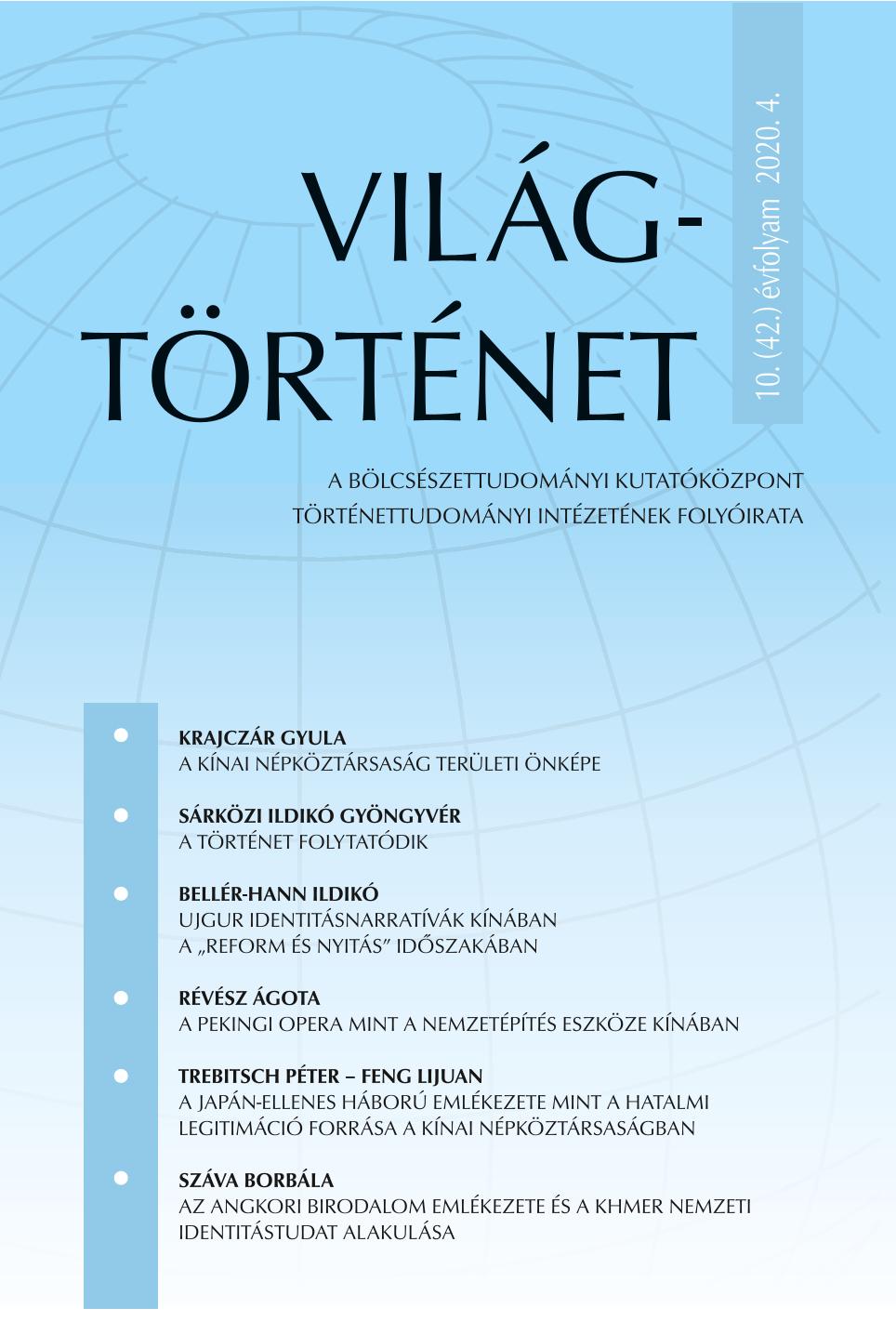A pekingi opera mint a nemzetépítés eszköze Kínában
Beijing Opera and Nation-Building in China
Author(s): Ágota RévészSubject(s): Cultural history, Music, Recent History (1900 till today)
Published by: Magyar Tudományos Akadémia Bölcsészettudományi Kutatóközpont Történettudományi Intézet
Summary/Abstract: The article discusses the role Beijing opera has acquired in the process of nation building in China. Starting from the mid-19th century, China has been struggling with the task to establish and articulate itself as a nation. As the concept of the nation is, in turn, strongly dependent on culture, it was inevitable for opera (i.e. “theatre” in China, the art form being able to address the widest audiences) to be drawn into the area of politics. Beijing opera happened to be at the right place at the right time. It reached popularity in the urban centres as the idea of nation building was becoming prominent. The huge successes of the overseas tours of Mei Lanfang, its biggest star, offered an insight into what is perceived as “Chinese” by foreign audiences – and helped shape the national image of China. After 1949, the centrally organized dissemination of Beijing opera to every region of the country was meant to be a step towards national cultural unification. Beijing opera’s close relationship to the political centre was further strengthened by the “model operas”, which assisted greatly in defining the revolution as a national tradition. The past four decades have seen Beijing opera emerge as a means for cultural diplomacy. The history and current status of Beijing opera – one of the many operas of China – are inseparable from its political significance as a carrier and co-creator of Chinese national identity.
Journal: Világtörténet
- Issue Year: 2020
- Issue No: 4
- Page Range: 581-604
- Page Count: 24
- Language: Hungarian

